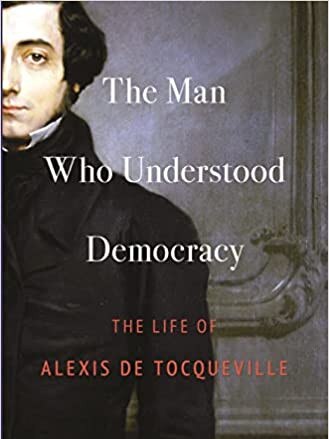Alexis de Tocqueville: a genius of conservative scepticism
Born to the cream of the French aristocracy, Alexis de Tocqueville is a perpetual reminder of how the potential monstrousness of any modern state.

The story goes that when Zhou Enlai, that supreme Chinese master of the subtleties of diplomacy, was asked whether the French Revolution was a good thing, he replied, “It’s too early to tell”.
Edmund Burke, that radical conservative, said it was “the void” in French history and it was certainly an abiding preoccupation of the French aristocrat who wrote one of the most subtle and sceptical accounts of the land of the free, Democracy in America,along with The Ancien Regime and The Revolution.
Alexis de Tocqueville was born to the cream of the French aristocracy, the world of the Faubourg Saint-Germain, and members of his family went to the guillotine during the Reign of Terror.
He was foreign minister for a while after the uproar of 1848 and then this searching and vehement aristo who sought to understand the people found himself in prison because he took a dim view of the sweeping authoritarian takeover of Napoleon III. Oddly enough, he went to America in the first place in 1831 when he was in his 20s to investigate its prison system – and Olivier Zunz is impeccable in tracing the ins and outs of how society could work when an aristocracy which had upheld the traditional place of the populace had to give way or be modified by the voice of the masses.
No one in the history of political scrutiny and its elaboration into political science is more sensitive to the ways in which tyrannical forms of dominance can be established in the name of democracy than this born-to-rule sceptic who went to look at versions of Jeremy Bentham’s panopticon prison but was utterly awed by the heartfelt splendours and ambiguities of Thomas Jefferson’s Declaration of Independence.
He was struck by the moral grandeur of a figure like John Quincy Adams with his loftiness of vision and his opposition to slavery but he could also see that Andrew Jackson could use populism as a way of bending the people to his will.
He described America as a place where “liberty is old and equality is comparatively new” and he saw the citizens of democracy as requiring “submission to the authority of an immense tutelary power which asserts sole responsibility for securing their pleasure and watching over their fate. It is absolute, meticulous, regular, provident and mild. It would resemble paternal authority if only its purpose were the same, namely to prepare men for manhood. But on the contrary it seeks only to keep them in childhood irrevocably”.
Bread and circuses, the infantilising of the political animal. On the other hand, de Tocqueville was canny enough to see the political benefits in a fallen world (and he died a Catholic) of an America where “self-interest” had replaced “virtue” even if he had grave doubts about the upshot and perhaps little intuitive sense of how the two might co-exist.
After all, he had an instinctive sense of human brutishness and banality and a nose for the extremism that could be masked by the submissive greed of the tribe.
No one is better than de Tocqueville at trying to understand the politics of the world. He’s in a French tradition that stretches back to Pascal with his mingled doubt and faith, t, just as he is influenced by such contemporaries as Chateaubriand and the novelist George Sand.
It’s essentially in the philosophically painstaking examination of first principles that he is led to glimpse the light in the darkness. He saw America’s political rationalism as deriving from Descartes and this is how he spelled it out.

“One can imagine an extreme point at which liberty and equality touch and become one. Suppose that all citizens take part in government and each has an equal right to do so. Since no man will be different from his fellow men, no one will exercise a tyrannical power. Men will be perfectly free because they will all be entirely equal, and they will be perfectly equal because they will be entirely free. This is the ideal towards which democratic peoples tend.”
Yes, that’s how it would work if it did work but in another part of his soul de Tocqueville thought the clamour for economic equality would naturally follow the demand for social equality and we would end up with the tyranny of so many pigs at the trough and everyone at the mercy of government that was centralised and authoritarian even as it catered for the vaunted wants of the people.
William Tecumseh Sherman, the general who razed Georgia, said “Vox populi, vox bunkum”. De Tocqueville is a genius of conservative scepticism, a perpetual reminder of how a society we have plenty in common with voted for Hitler and of the potential monstrousness of any modern state. After all, as subtle a figure as Zhou served a dictator, Mao Zedong. And many people in China today no doubt like to imagine they’re free.
Peter Craven is a writer and cultural critic.
The Man Who Understood Democracy: The Life of Alexis de Tocqueville


